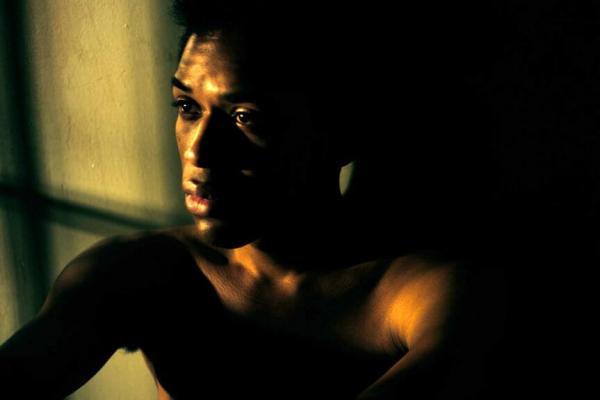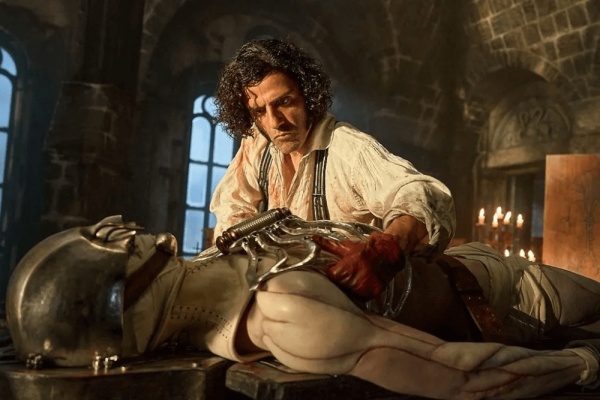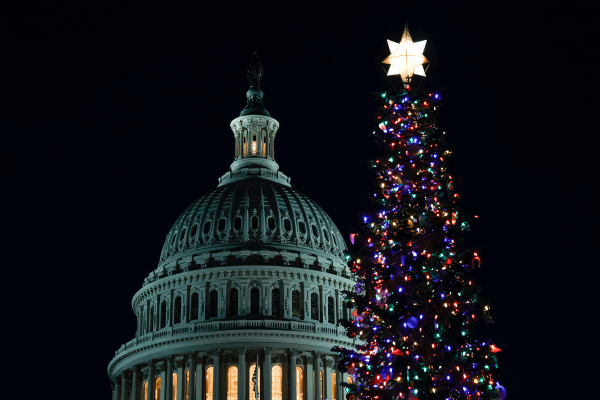I never read Walter Dean Myers’ 1999 novel, Monster, so I approached director Anthony Mandler’s film adaptation — newly released to Netflix — with a mix of curiosity and anxiety: curiosity because Monster touches on topics I think about often: race, class, mass incarceration, crime, and the U.S. penal system; anxiety because, well, all the same reasons. And while I promise not to spoil the ending, this movie — which is part legal drama, part social commentary, and part monster movie — will leave you wondering: Who is the monster?
The story is narrated by Steve Harmon (Kelvin Harrison Jr.) a 17-year-old, Black, New Yorker who enjoys spending time with his friends and honing his true passion: storytelling through film and photography.
After a bodega robbery in Harlem leaves store owner, Aguinaldo Nesbitt (Roberto Lopez) dead, Anthony Petrocelli (Paul Ben-Victor), a by-the-book assistant district attorney tries to persuade a jury that Steve acted as a lookout for the two men who allegedly committed the robbery and murder: Richard “Bobo” Evans (John David Washington) and James King (Rakim Mayers, aka A$AP Rocky).
Steve’s freedom now hinges on his storytelling: Can he convince a jury that he is not a monster?
The film’s timeline is asynchronous, which underscores both Steve and the viewer’s disorientation — and gives the film that eerie feeling monster movies are known for. One moment, Steve and his friends revel on a New York subway late into the night; what Steve calls “the before.” The next moment, we are with Steve in prison where he and the other prisoners are treated like animals. Prison is what Steve calls “the after.”
The love of Steve’s parents, played by Jeffrey Wright and Jennifer Hudson, grounds the movie. During Anthony Petrocelli’s opening argument, he speaks to the jury saying, “Most of the people in our communities are decent, hard-working individuals. Unfortunately, there are others in our neighborhoods who are not like us; they’re not kids. They’re young men who know the difference between right or wrong.” He points at James and then at Steve, yelling, “He’s a monster! He’s a monster!” Steve’s parents become visibly shaken at this grotesque accusation, but their care for Steve remains steadfast throughout the film. It turns out that a loving, two-parent household is not, in fact, the silver bullet that will keep young, Black men out of the carceral system.
Every good monster movie needs a monster catcher, so if Steve is among the monsters, his captors are the police. In a rote and chilling scene, the police arrive at Steve’s home where they ask his parents if Steve is available without telling them why they’re making a house call. Steve’s parents protest — “Where are you going? What did he do wrong? What precinct are you taking him to?” But the police ignore them. Steve is cuffed and led to a squad car; his parents embrace and ask one another a question many other parents in similar situations ask themselves, “What’s going on?”
The question lingers through the film. How did Steve end up in such a hellish situation?
Some will want to “solve” that mystery by suggesting Steve ended up in the situation because he fell in with men of ill repute. But to boil Steve’s dire situation down to a matter of peer pressure is at best naive and at worst, racist (it’s not impossible to be both).
The film never comes out and names Bobo or James as the monsters, but it would be easy to walk away believing that if Steve hadn’t been attracted to the transgressive James in particular, then he would be scot-free. James is part of a gang, never strapped for cash, but always strapped with a weapon; he is streetwise, and he is the epitome of a rugged, American individual, minus his blackness. Said differently, if James King was played by John Wayne instead of A$AP Rocky — if he was a “cowboy” instead of a “gangster”— certain audiences would perhaps be more sympathetic to his plight.
Instead, some viewers will likely reserve their sympathy for Steve, “one of the good ones,” and ask some variation of, “What’s going on with Steve’s relationship to James? Can’t he see that James is a monster?” But a better question to ask is, “What does Steve see in James that we do not?” Steve plays basketball and chess with James. He listens to him wax poetic about the importance of trust. And somewhere along the line, he sees something in him that many people — especially those in the criminal justice system — don't: James's humaneness despite its distortion.
Does James take advantage of his friendship with Steve, ultimately forcing the two to stare down the barrel of the U.S. penal system? Absolutely. But what pushed James to such extremities in the first place? Why do certain people feel they must live life with such recklessness? Are both James and Steve monsters? I’m a believer in original sin. But to suggest that either Steve or James willingly make decisions outside the law because of their “sinful nature” is to miss the entire point of Monster and, ultimately, the entire sweep of American history. In a country that was originally “founded” on the sinful premise that the “brutes” must be exterminated, it shouldn’t shock us that some of the descendants of those so-called brutes are returning the violence inflicted upon them and their ancestors sevenfold.
Blackness and criminality have become synonymous, and Monster exposes that sad fact as we watch the system rob Steve of his innocence while it reminds James he never had any innocence to begin with. Both must be named as “monsters” in the American imagination. And like all monstrous “demons,” there is a place — a cell — reserved for them where they will be damned eternally. But are either the real monster?
At the end of the film, the jury makes a verdict on this, but it's up to the audience to decide whether the court system, with all its racist baggage, is even qualified to answer this question. For those who believe prison has some role yet to play in society, or that there is such a monster as a “super-predator,” I strongly recommend watching this film on repeat to disabuse you of those notions. It is maddening that it will be easier for some to see a character like James King as a monster than it will be for them to see the actual monster: the systems that make stories like this even remotely true.
Monster is out now to stream exclusively on Netflix.
Got something to say about what you're reading? We value your feedback!







